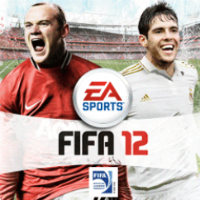Ghostwire Tokyo
LQ: 9.7
Recommended Age: 12+
Skills Used: Flexibility, Working Memory, Reading

FIFA Soccer 12 lets players take control of their favorite soccer team, challenging other players or the computer in quick Exhibition games or playing through a lengthy season in Career mode. A new mode, called “Become a Pro,” even lets players assume the identify of a lone soccer player (as opposed to controling the whole team). Just like regular soccer, players must work their way down the field, passing the ball and attepmting to kick the ball into their opponents net to score, with the player holding the most points at the end of the game crowned the winner. FIFA Soccer 12 is recommended for kids ages 8 and up, as there is no violence (outside of a rough tackle), and little reading is needed to understand the controls.
Adapting and adjusting to changing conditions and expectations.
![fifa12arsenalchelseacenterpitchwm[1]](https://learningworksforkids.com/wp-content/uploads/fifa12arsenalchelseacenterpitchwm1-325x182.jpg) Like real soccer, FIFA Soccer 12 is a team sport. Players must learn to pass the ball when needed, switching players frequently to avoid having the ball stolen. Most athletes in the game handle the ball differently, so players should become familiar with their whole team, knowing which players to use defensively and which to use offensively. Also, players should become familiar with different soccer techniques like slide tackles, and lobs. Without learning the many tricks of FIFA Soccer 12, players will be leagues behind tough opponents, especially online.
Like real soccer, FIFA Soccer 12 is a team sport. Players must learn to pass the ball when needed, switching players frequently to avoid having the ball stolen. Most athletes in the game handle the ball differently, so players should become familiar with their whole team, knowing which players to use defensively and which to use offensively. Also, players should become familiar with different soccer techniques like slide tackles, and lobs. Without learning the many tricks of FIFA Soccer 12, players will be leagues behind tough opponents, especially online.
Being efficient and aware of our use of time and effort. Estimating time and meeting deadlines.
Each game of soccer is 90 in-game minutes (much faster than real minutes), leaving players only a finite amount of time to score more points than the opposing team. Players must use this time to their advantage. For example, once ahead on goals, players would want to play more defensively, taking the ball from the opponent and burning down time to win. If behind on goals, players would want to play aggressively, and score before time runs out. Game time can also be changed in the option menu, so shorter or longer games can be played as desired.
Managing our actions, feelings and behaviors. Managing anger and frustration.
 Another important skill crucial to performing well in the game is the ability to control one's temper and not act impulsively. Players who become quickly disappointed or frustrated when the flow of the game is not in their favor will have trouble remaining calm throughout the game, and can hinder them from making wise decisions. If the player acts impulsively and rushes their defense deep into the field or makes hasty shots, they will only open up more scoring opportunities to the opponent. FIFA, like most things, is a game of highs and lows, and players are best served to remain calm. By managing feelings of frustration and disappointment, players are better able to focus on the game, improving their strategy and bettering their chances of victory.
Another important skill crucial to performing well in the game is the ability to control one's temper and not act impulsively. Players who become quickly disappointed or frustrated when the flow of the game is not in their favor will have trouble remaining calm throughout the game, and can hinder them from making wise decisions. If the player acts impulsively and rushes their defense deep into the field or makes hasty shots, they will only open up more scoring opportunities to the opponent. FIFA, like most things, is a game of highs and lows, and players are best served to remain calm. By managing feelings of frustration and disappointment, players are better able to focus on the game, improving their strategy and bettering their chances of victory.
All membership plans come with full access to our entire suite of tools learning guides, and resources. Here are a few of the ones we think you’ll like the most: